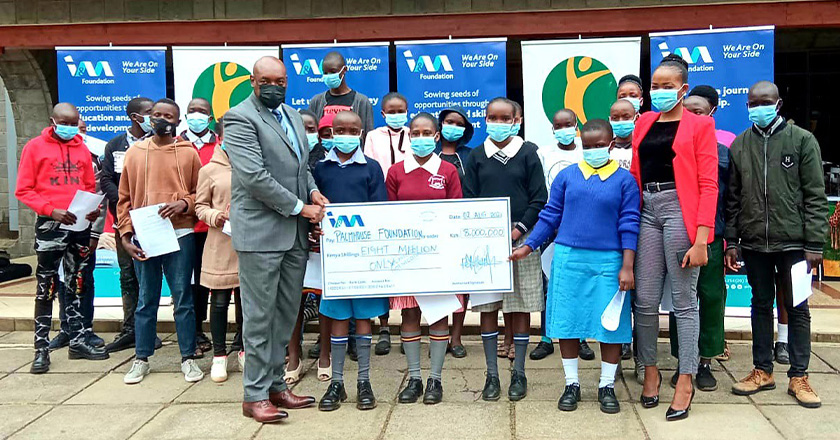Media Room
Inspiring Financial Inclusion: The time is now!

Since the historic World Conference for Women in 1995, known as the Beijing Conference, women worldwide, including those from Kenya, have determinedly advocated for economic empowerment. The conference marked a pivotal moment in advancing the global agenda for gender equality by adopting strategic initiatives aimed at promoting women’s economic rights and independence. These initiatives agitated for access to employment, appropriate working conditions, and empowering women with control over economic resources. Nearly three decades have passed since these measures took centre stage in the public discourse and their impact has been varied.
In 2013, The Africa Development Bank defined financial inclusion as encompassing all initiatives that render formal financial services available, accessible, and affordable to every segment of the population. Achieving this goal involves addressing the needs of populations historically excluded from the formal financial sector due to factors such as income levels, volatility, gender, geographic location, type of activity, or level of financial literacy.
In the intervening years, Kenya has witnessed significant progress, marked by the implementation of diverse measures aimed at alleviating and ultimately eradicating poverty among women and girls.
In July 2019, marking 25 years post-Beijing, the Ministry of Public Service, Youth and Gender published a report on the Progress on Implementation of the Beijing Platform for Action.
Encompassing a spectrum of initiatives, the report outlines endeavors geared towards promoting gender equality in pivotal domains. Noteworthy among these is the establishment of financial mechanisms designed to facilitate access to funding. Examples include the Women’s Enterprise Fund and the Uwezo Fund, which received allocations amounting to Kes. 182.9 million and Kes. 10 billion, respectively, as disclosed in the 2023/2024 budget announcement by National Treasury Cabinet Secretary Njuguna Ndung’u.
The primary objective of these funds is to enhance women’s access to affordable credit, aligning with the broader goal of achieving Sustainable Development Goals 1 and 5, addressing poverty eradication, gender equality, and women’s empowerment. Despite these efforts, a critical question arises: why does a gap in inclusion persist and what factors contribute to its resilience?
According to the 2021 FinAccess Household Survey, a report released in 2022 by Financial Sector Deepening (FSD), 83.7% of Kenyans have access to formal financial services. Notably, the gender gap in financial access has shown improvement, decreasing from 8.5% in 2016 to 5.2% in 2019, further narrowing to 4.2% in 2021. Despite advancements in formal financial inclusion driven by increased access to mobile money, women still resort to informal channels for financing, irrespective of their income or educational levels.
This highlights the prospect of engaging women-led communities and networks. Of prominence is the trend of women involved in ‘chama’ groups; informal, communal, and social networks rooted in familial and social connections, extending financial support and across various aspects of life.
These networks are characterized by robust cohesion, with members carefully vetting each other for membership, built on a foundation of implicit trust. Typically, these ‘chamas’ also integrate some form of financial investment, through projects, table banking and revolving funds, or the exchange and trade of goods and services among members.
As the curtains come down on this year’s International Women’s Day whose theme ‘Inspire Inclusion’ underscored the significance of diversity and empowerment across all facets of society, it compels us to acknowledge and appreciate the distinctive perspectives and contributions of women hailing from diverse backgrounds, including those within marginalized communities.
By establishing pathways for women through the prioritisation of education, skills development and technological access, we unlock avenues for women to progress and contribute to a more inclusive financial sector.
As we forge forward, it is clear that is isn’t about merely about uplifting individual lives but a collective investment in a future where no woman is left behind and the potential of the next generation is unbounded. The journey towards true financial inclusion is ongoing, requiring sustained commitment, innovation and a collective societal drive to dismantle the remaining barriers.
Janet Mawiyoo is a Trustee of the I&M Foundation and the CEO of Galvanizing Africa Consult with over 30-yrs experience in the global non-profit sector.